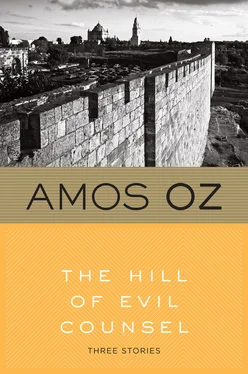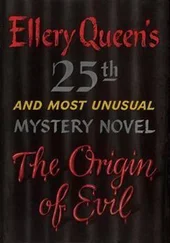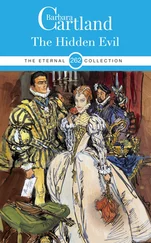Pale light in the window. A cock is crowing furiously in the next-door yard. And the strange boy is already up and about, poking in the junk and dragging discarded packing cases hither and thither. Six o'clock in the morning. A new day, and I must put the kettle on for my shaving water and my early-morning coffee. For another half hour I can still keep the night-child alive, our son, the baby you bore me and hid from me. At half past six the newspaper arrived, and at a quarter past seven I heard on the news that the London Times has warned the Zionists against a reckless gamble that may prove fatal, and advised them to make a realistic revision of their aspirations and to understand once and for all that the idea of a Jewish state will lead to a blood bath. Another solution must be devised that may be acceptable to the Arabs, too, at least to their more moderate elements. However, the paper will in no way sanction handing over the achievements of the Zionist settlers to Moslem religious fanatics; the achievements themselves are admirable, but the inflated political aspirations of the leaders of the Jewish Agency verge on adventurism. After the news, while I made my bed and dusted the highboy and the bookshelves, David Zakkai gave a talk about the night sky in September. Then there was a program of morning music, while outside in the street the kerosene vendors and icemen rang the bells of their pushcarts. Over and over again I weighed the words in my heart: Recklessness. Gamble. Adventurism.
At eight o'clock, I decided to go to the Hadassah Hospital on Mount Scopus, to invade Professor Dushkin's office for a quarter of an hour and ask him again how my illness was developing and what he made of last week's tests. The piercing desert light had already engulfed Jerusalem. A dry wind was blowing among the hills. And in the dusty bus the students were joking, mimicking the German accents of their lecturers with a Polish twist of humor. Along the way, in the suburb of Sheikh Jarrah, there were wickerwork stools spilling over onto the sidewalk from a coffeehouse, and on one of them I saw a young, educated Arab in a pin-striped suit and horn-rimmed spectacles sitting in motionless contemplation, the tiny coffee cup seemingly frozen in his hand. He did not take the trouble to direct so much as a glance at the Jewish bus. In my mind I could not refrain from comparing his silence with the clamor of the students in the bus and the histrionic laughter of the girls. And I was filled with apprehension.
Professor Dushkin roared my name delightedly and immediately shooed out of his office a clucking, shriveled nurse who had been filling out index cards. He slammed the door after her, thumped me on the shoulder, and proclaimed in a Russian bellow:
"Out with it! Let's talk frankly, as usual."
I asked him four or five short questions concerning the results of last week's tests and received the expected replies.
"But look here, my dear Emanuel," he exclaimed rumbustiously, "you remember what happened in the summer of '44, with Rabbi Zweik, the mystic from Safed. Yes. We came to exactly the same conclusions with him, and yet his tumor dissolved and his condition was, how shall we say, arrested. And he's still alive and kicking. It's a fact."
I smiled. "So what are you suggesting, that I should settle down to study mysticism?"
Professor Dushkin poured out tea. He pressed me to accept a biscuit. Idiocy, he declared, was rampant on all sides. Even among his own faculty. Even in politics. The leaders of the Jewish Agency, he considered, were political infants, loudmouthed amateurs, small-town autodidacts, illiterates, ignoramuses, and these were the people who had to pit their wits now against the sophisticated experts of Whitehall. It was enough to drive you crazy. Another glass of tea? What's the matter with you, of course you will. I've poured it out already, what do you want, have you only come here to irritate me? Drink! In a word, Shertok and Berl Locker. What more need I say: political Svidrigailovs everywhere. In December we'll have you in for some more tests, and if there's been no change for the worse by then, we'll be entitled to take it as an encouraging sign. No, more than a sign, a turning point! That's right. Meanwhile, how shall I put it, keep your spirits up, my friend. One cannot help admiring your composure.
As he spoke, I suddenly noticed a film of tears in his eyes. He was a heavily built, muscular, compact-looking man. He invariably wept at the first onset of emotion; he was always flushing and boiling over. I had secretly nicknamed him "Samovar."
I rose to take my leave.
So, no new tests just yet. And no treatment. Just as I had expected.
"Thanks, Dushkin," I said. "Thank you very much."
"Thanks?" he cried out as if I had wounded him. "What's the matter? What's got into you? Are you crazy? What have you got to thank me for all of a sudden?"
"You've been frank with me. And you've hardly uttered a single superfluous word."
"You're exaggerating, Emanuel," he said with sadness and emotion in his voice. "For once you're exaggerating. But of course," he added in his former tones, "of course when idiocy is on the rampage, any meeting like ours today is almost an occasion. Svidrigailovs, I say: political Svidrigailovs, and medical Svidrigailovs as well. Even here in our department there are all sorts of Shertoks and Berl Lockers living it up. Well. The bus into town leaves in ten minutes. Number nine as usual. No — don't run! There's no hurry, it'll be late. I swear it'll be late. After all, it's Hammekasher, not the Royal Navy. If you notice any change, come and see me at once. At two o'clock in the morning, even. You can be sure of a hot glass of tea. How I love you, Emanuel, how my heart weeps for you. Na! Enough. Since we were talking about that grubby saint Rabbi Zweik, who broke all the rules in our book and literally rose from the dead, let me repeat a little saying of his. He used to tell us that the Almighty sometimes plays a trick on His worshipers and shows them that if He wills He can save a life even by means of doctors and medicine. Now, fare you well, my friend. Be brave."
His eyes glistened again. He opened the door for me furiously and suddenly roared out in a terrible voice:
"Svidrigailov! Shmendrik! Come here at once! Run and clear the X-ray room for me immediately! Use force if necessary! Throw a bomb in, I don't care! But on the way show Dr. Nussbaum here to the elevator. No, to the bus stop. You're turning this Jerusalem of ours into a veritable Bedlam! As you see, gentlemen, at times I can be a terrible man. A cannibal. A tartar. That's what I am. Na! Be seeing you, Emanuel. And don't worry about me. You know me. I'll get over it. And also… Forget it. Good-bye, good-bye, good-bye."
Despite all this, I missed the bus. But I bore no grudge against Samovar. I waited on the bench at the bus stop for close to an hour. The city and the mountains seemed amazingly quiet. Minarets and domes in the Old City, buildings overflowing down the slopes of gray hills in the new town, here and there tiled roofs, empty plots, olive trees, and apparently not a soul in Jerusalem. Only the dry wind in the woods behind me, and birds chattering calmly from the British military cemetery.
But on the other side lay the desert. It was literally at my feet.
A neglected, rock-strewn terrain dotted with pieces of newspaper, thistles, and rusting iron, a wasteland of limestone or chalk. In other words, from the scenic point of view Mount Scopus is the threshold of the desert. I have a horror of this propinquity between myself and the desert. Over there are forsaken valleys, rocks baking in the sun, shrubs sculpted by the wind, and there are scorpions in the crevices of the rocks, strange stone huts, minarets on bald hilltops, the last villages. On the opposite slopes and in the Jordan valley are traces of ruined biblical towns, Sumieh, which my English pilgrim identifies with Beth-jesimoth, Abel-shittim, Beth-haran, Nimrin, which may be the ancient Beth-nimrah. And scattered among these ruins are camps of Bedouin tribes, goatskin tents, and dark shepherds armed with daggers. Justice through bloodshed. The simple law of the desert: love, honor, and death. And there is a venomous biblical snake called the asp. How I shudder, Mina, at this closeness to the desert.
Читать дальше











